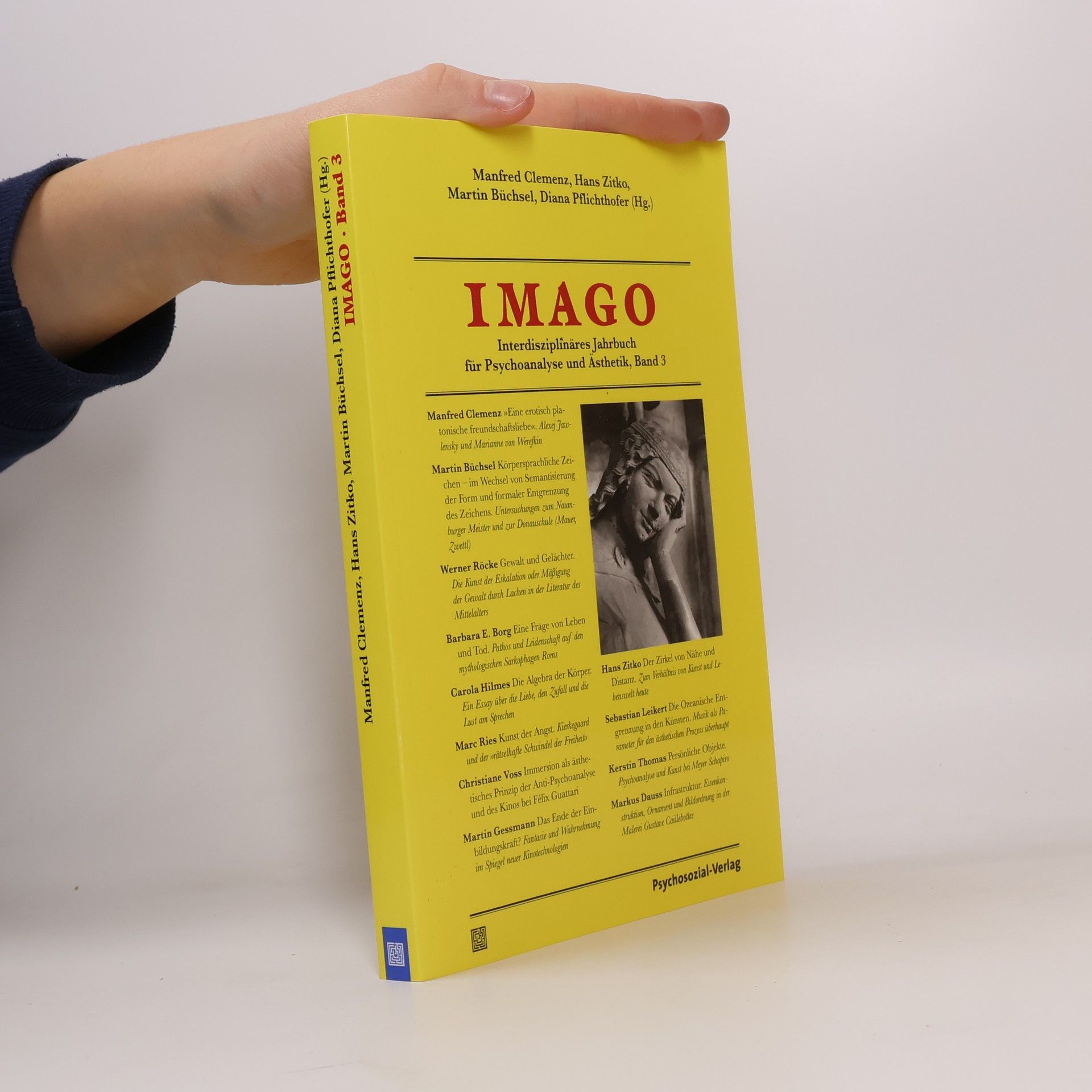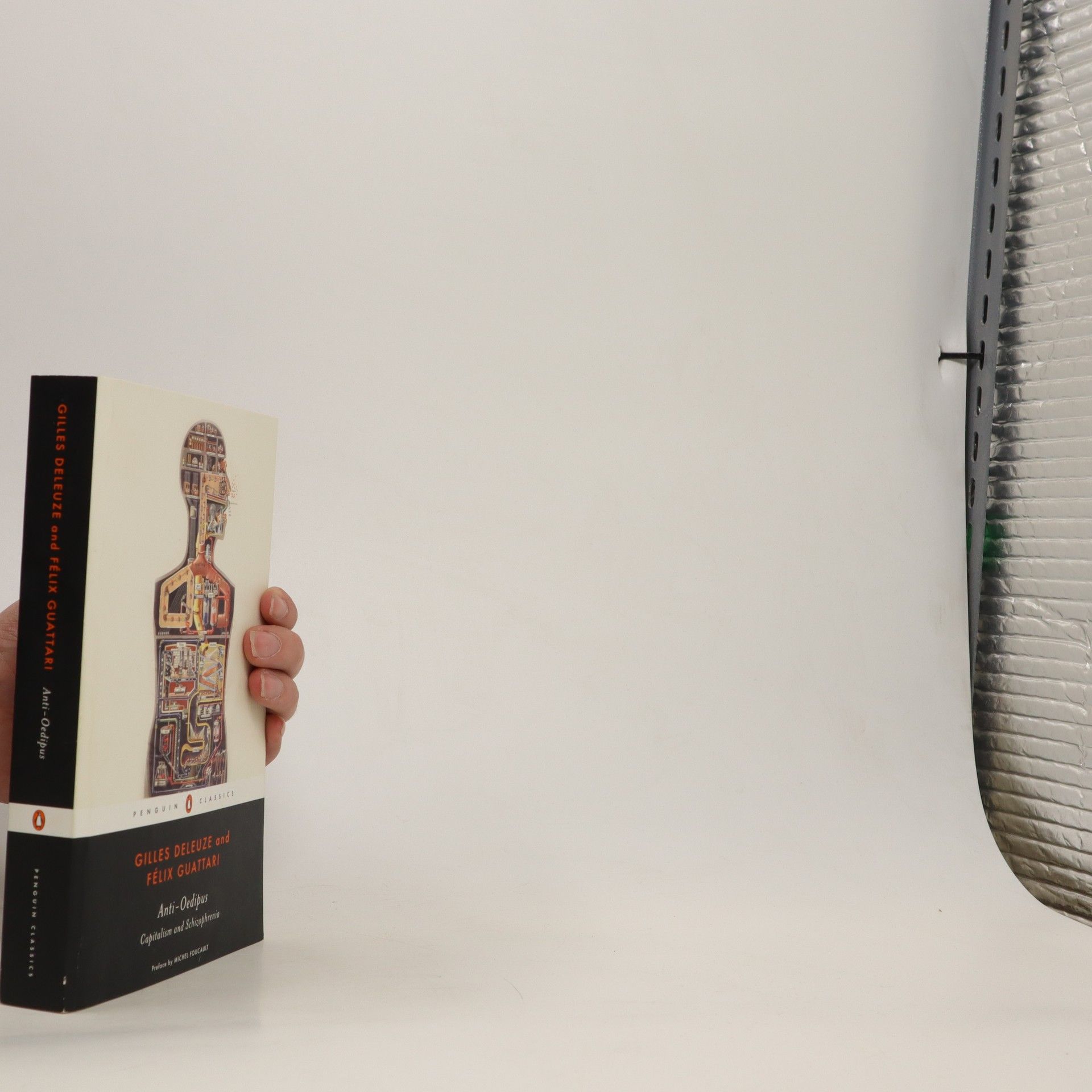Pośród mgieł i miazmatów zaciemniających koniec tysiąclecia pytanie o subiektywność powraca jak lejtmotyw. Subiektywność nie jest w sposób naturalny dana, nie bardziej niż woda i powietrze. Jak ją produkować, zdobywać, wzbogacać i ciągle wymyślać na nowo, tak by mogła być zgodna z Uniwersami mutujących wartości? Jak pracować nad jej wyzwoleniem, to znaczy resingularyzacją? Psychoanaliza, analiza instytucjonalna, film, literatura, poezja, innowacyjna pedagogika, urbanistyka i architektura - wszystkie te dziedziny będą musiały połączyć swoją kreacyjność, by odeprzeć zarysowujące się na horyzoncie ataki barbarzyństwa, mentalną zapaść i chaosmiczny spazm i by przekształcić je w nieprzewidziane bogactwa oraz rozkosze, których obietnice są zresztą całkiem namacalne. Spis treści Produkowanie subiektywności Maszynowa heterogeneza Schizoanalityczne metamodelowanie Schizochaosmoza Maszynowa oralność i ekologia wirtualności Nowy paradygmat estetyczny Ekozoficzny obiekt Indeks osobowy
Félix Guattari Book order (chronological)
Pierre-Félix Guattari was a French activist, institutional psychotherapist, philosopher, and semiotician who founded schizoanalysis and ecosophy. His work, particularly in collaboration with Gilles Deleuze, delves into the complex relationships between the psyche, society, and the environment. Guattari's thought is characterized by a radical critique of capitalism and a search for new forms of organization and liberation. His approach combines a deep understanding of the human mind with an urgent call for ecological renewal.







Eine Liebe von UIQ
Drehbuch
Um 1979 arbeiteten der amerikanische Filmemacher Robert Kramer und der französische Schizoanalytiker Félix Guattari an einem Film über zwei Flüchtlinge aus der italienischen Autonomiebewegung, Latitante. Geplant als kollektive Reflexion über die Endlichkeit und Zerbrechlichkeit des Körpers, sollte der Film, in dem Pasolinis enge Freundin Laura Betti die Hauptrolle spielen sollte, die Intimität des Widerstands thematisieren. Doch im Verlauf der Produktion verwandelte sich das Projekt in den Science-Fiction-Film Un amour d’UIQ, eine formale Verschiebung, die von den umfassenden politischen Veränderungen der Zeit geprägt war. Diese Veränderungen reflektieren den Übergang von den großen ideologischen Erzählungen der 1960er und 70er Jahre zu den Videodrome-Mutationen, die die gegenkulturellen Entwicklungen der 1980er Jahre kennzeichnen sollten. Guattaris Erzählung verbindet diese beiden Strömungen, indem sie die Entschlossenheit der ersten und die konzeptionellen Mittel der zweiten aufgreift. Der kopflose Körper des Operaismo, der politische Organe vermissen lässt, kündigte einige der politisiertesten Formen des Cyberpunks und dessen Antiautoritarismus an. Das gesamte Drehbuch ist durch eine spürbare Spannung geprägt, die darauf abzielt, die Gegenwart und ihre Realitäten nicht nur kritisch zu betrachten, sondern sie radikal umzugestalten.
Subjektivität ist das Ergebnis eines Produktionsprozesses, der fortwährend von kollektiven Instanzen getragen Institutionen, Parteien, Medien, Talkshows, Ausstellungen, Psychotherapien...Guattari zufolge kommt der Kunst in diesem Zusammenhang besondere Bedeutung zu. Zwar läuft sie als Institution immer Gefahr, durch die kapitalistische Subjektivität "plattgewalzt" zu werden. Als existenzieller Prozess aber umreißt sie "Zonen des Widerstands" gegen die vorherrschenden Spielarten des Ich-Designs. Das ist der Kern des ästhetischen Die Heterogenesen der Kunst beziehen Stellung gegen die kapitalistische Homogenese.Dieser Band macht erstmals die Fallstudien zugänglich, auf deren Grundlage Guattari seine Sichtweise des künstlerischen Prozesses entwickelt hat. Er enthält alle Aufsätze und Gespräche, in denen er sich mit einzelnen Malern, Bildhauern, Photographen oder Architekten auseinandergesetzt von Gérard Fromanger und Roberto Matta über Balthus bis hin zu Piotr Kowalski und George Condo.
Psychoanalysis and Transversality
- 384 pages
- 14 hours of reading
Transversality can be visualized as a fenced field with horses wearing adjustable blinkers, where the adjustment represents the "coefficient of transversality." When the blinkers are fully closed, the horses experience a traumatic encounter, but as they are opened, movement becomes easier. Originally published in French in 1972, this collection features articles by Félix Guattari written between 1955 and 1971, offering insight into his intellectual and political journey leading up to his collaboration with Gilles Deleuze in "Anti-Oedipus: Capitalism and Schizophrenia." Guattari's unique background includes co-founding the La Borde psychiatric clinic in 1953 with psychoanalyst Jean Oury, emphasizing that treating psychotics requires altering the entire institutional context. He viewed "institutional psychotherapy" as a means not only to heal but also to foster a new relationship with the world. A dissident within the French Communist Party and an active participant in the May 1968 student uprising, Guattari recognized the potential for integrating analysis into political groups. He conceptualized these groups as open machines—subject-groups—rejecting hierarchical structures and developing transversally, rhizomatizing through connections with other groups.
Das Periodikum IMAGO wurde mit dem Ziel gegründet, Diskussionen zwischen Kunst, Ästhetik, Psychoanalyse und angrenzenden Disziplinen anzustoßen und zu intensivieren. Das Jahrbuch versammelt interdisziplinär orientierte Beiträge, die sowohl grundsätzliche theoretische Fragen behandeln als auch Deutungen empirischen Materials liefern.Das weitgefächerte Themenspektrum des dritten Bandes reicht von Gewalt und Gelächter in der Literatur des Mittelalters über die Ozeanische Entgrenzung in den Künsten und das Verhältnis von Kunst und Lebenswelt bis zu Fantasie und Wahrnehmung im Spiegel neuer Kino-Technologien.Mit Beiträgen von Barbara Borg, Martin Büchsel, Manfred Clemenz, Markus Dauss, Martin Gessmann, Carola Hilmes, Sebastian Leikert, Marc Ries, Werner Röcke, Kerstin Thomas, Christiane Voss und Hans Zitko
Chaosmose
- 170 pages
- 6 hours of reading
In diesem Werk, das sein letztes bleiben sollte, ging es Guattari um die Entstehung des »Neuen«. Aus der psychiatrischen Arbeit wusste er, dass sich neue Subjektivitäten bilden können, wenn Patienten eine Psychose durchleben. Die Axiome des Bestehenden treten hier ebenso außer Kraft wie manchmal im künstlerischen Schaffen. In beiden Fällen sind Veränderungen möglich, die nicht wieder - etwa durch neurotische Vermeidungsstrategien - in die alte Ordnung integriert werden. Guattari entwickelt aus solchen Ausnahmesituationen ein begriffliches Instrumentarium für Veränderungen überhaupt. Auch wenn er es stets vermieden hat, Schizophrenie und Psychose zu ontologisieren oder, wie er selbst sagt, »die Künstler zu den neuen Helden der Revolution zu machen«, ist seine philosophische Radikalität dabei kaum zu überbieten. Guattari weist einen philosophischen Weg in die Welt nach der Postmoderne, nach der Psychoanalyse, nach dem Kalten Krieg hin zu den neuen informationstechnischen Ordnungen, ökosophischen Objekten und variablen Subjektivitäten der Gegenwart.
The Machinic Unconscious
- 367 pages
- 13 hours of reading
An early work that lays the foundation for establishing a polemical dimension to psychoanalysis.
Soft Subversions
- 341 pages
- 12 hours of reading
A new, expanded, and reorganized edition of a collection of texts that present a fuller scope to Guattari's thinking from 1977 to 1985.
Anti-Oedipus : capitalism and schizophrenia
- 432 pages
- 16 hours of reading
An "introduction to the nonfascist life" (Michel Foucault, from the Preface) When it first appeared in France, Anti-Oedipus was hailed as a masterpiece by some and "a work of heretical madness" by others. In it, Gilles Deleuze and Félix Guattari set forth the following theory: Western society's innate herd instinct has allowed the government, the media, and even the principles of economics to take advantage of each person's unwillingness to be cut off from the group. What's more, those who suffer from mental disorders may not be insane, but could be individuals in the purest sense, because they are by nature isolated from society. More than twenty-five years after its original publication, Anti-Oedipus still stands as a controversial contribution to a much-needed dialogue on the nature of free thinking.


